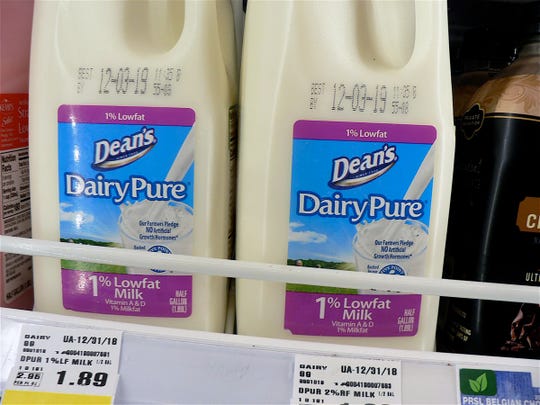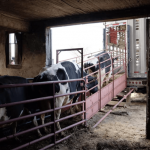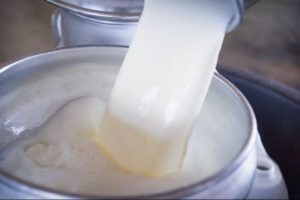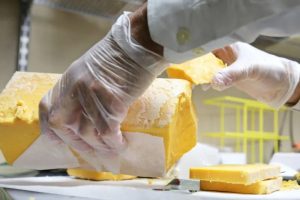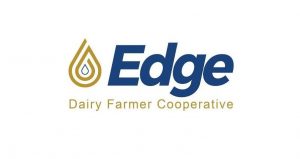
Documents state that the Texas-based dairy processor and DFA agreed to “mutually terminate” the $425 million asset purchase. The purchase would have included 44 of Dean’s frozen and fluid facilities, real estate, equipment, inventory and associated delivery systems, along with various liabilities.
Dean Foods is owned by and serves more than 14,500 dairy farmer-members representing more than 8,500 dairy farms in 48 states.
Last month, DFA President and CEO Rick Smith announced that it had entered into an asset purchase agreement with Dean through which DFA would serve as the stalking horse bidder in the court supervised sale.
The deal was called off after objections from farmers and agriculture advocacy groups as well as members of DFA and Dean shareholders filed a legal document opposing the pending sale, citing concerns about prices, competition and antitrust issues.
While Dean shareholder Susan Poole says she is glad DFA is no longer the stalking horse bidder (which would set a minimum for the process), she’s afraid potential bidders won’t have enough financial information nor sufficient time to cast a bid.
“The judge seems to be rushing the bidding process through. He hasn’t requested that updated (Dean Foods) financials be released to the public or shareholders,” she said. “From what little financial information that we’ve seen, we believe with the increased demand in the dairy industry that Dean has a greater positive cash flow more than ever.”
Dairy farmer and attorney Joshua Haar filed a brief in the bankruptcy court, asking the judge to appoint an ad hoc group of equity shareholders to ensure that the interests of fellow shareholders are adequately represented.
Haar wrote that the assets (of Dean Foods) on the table generate over $5 billion in sales.
“Even a conservative calculation evidences that Dean Foods possesses significant value in excess of liabilities,” he wrote. “The only question is where that value will be directed…DFA sees future profitability, which is why it wants Dean’s assets.”
Poole says many stakeholders are opposed to DFA purchasing Dean Foods for many reasons.
“A sale to DFA would create a monopoly on milk prices which would not only be bad for the consumer but for the dairy farmers that produce that milk,” she said.
Many dairy producers and retailers for the bankrupt milk-processing giant Dean were alerted in late January that the U.S. Department of Justice had launched a federal investigation of DFA’s potential acquisition of Dean and the potential impact it would have on prices and competition in the marketplace.
In 2007, southeastern dairy producers filed a class action lawsuit against Dean Foods and Dairy Farmers of America along with other companies for violating antitrust laws, according to court documents. Producers alleged that the companies created a monopoly in that part of the country which subsequently impacted milk prices. The companies settled the suit in excess of $300 million.
Poole believes that the March 30 sale deadline set by the U.S. Bankruptcy Court in Houston should be extended to also allow for the antitrust investigation by the DOJ to be completed. The court is expected to hold a hearing on the sale of Dean Foods assets on April 3.
“The judge is determined to rush this sale through when the process really needs to slow down,” she said.
According to a statement from Dean, that while DFA is no longer the stalking horse, the Kansas City-based cooperative is still expected to submit a bid for Dean’s assets by the March 30 deadline.
“Dean Foods simply believes that, by avoiding unnecessary litigation regarding procedure and bid protections for DFA, all parties involved, including DFA, will focus on developing competitive and value-maximizing bids,” the company said in a statement.
Monica Massey, executive vice president and chief of staff for DFA says the company is re-evaluating its options under the new bidding procedure, but any bid DFA submits “will benefit all dairy farmers.”
“No one has a greater interest in preserving milk markets than we do,” she said in a statement.
While DFA professes a desire to preserve milk markets for their members, Poole says the sale is a bad deal for everyone involved.
“Dean had over $1.26 in equity per share when they were forced into bankruptcy. Right now they could be more profitable than ever,” Poole said. “However, DFA wants to buy their assets quickly and cheaply, which doesn’t give proper value to all the stakeholders: creditors, bondholders or shareholders.”
